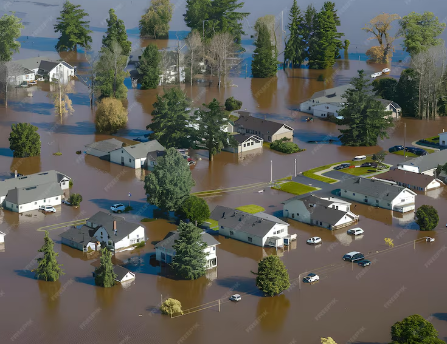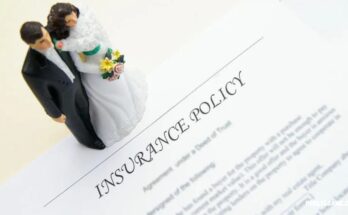Floods are one of the most common and costly natural disasters, causing extensive damage to homes and businesses. Flood insurance provides financial protection against these damages, ensuring that property owners can recover and rebuild after a flood. This guide will help you understand what flood insurance is, the types of coverage available, and how to choose the right policy for your needs.
What is Flood Insurance?
Flood insurance is a type of property insurance that covers losses and damages caused by flooding. It is specifically designed to protect against the financial devastation that can result from water damage due to natural events such as heavy rains, hurricanes, and overflowing rivers. Unlike standard homeowners insurance, which typically does not cover flood damage, flood insurance provides the necessary protection for flood-related incidents.
Types of Flood Insurance Coverage
Flood insurance policies generally offer two main types of coverage:
Building Property Coverage: This type of coverage protects the physical structure of your home or business. It includes the foundation, electrical and plumbing systems, HVAC systems, kitchen appliances, and permanently installed carpeting and fixtures. Building property coverage ensures that the essential components of your property are covered in the event of flood damage.
Personal Property Coverage: This coverage protects the contents of your home or business, including furniture, clothing, electronics, and other personal belongings. Personal property coverage is crucial for ensuring that your valuable possessions are protected and can be replaced if damaged by a flood.
Benefits of Flood Insurance
Flood insurance offers numerous benefits, making it an essential consideration for property owners, especially those in flood-prone areas:
Financial Protection: Flood insurance provides financial protection against the high costs of repairing and replacing damaged property. Without insurance, property owners would have to bear these costs out of pocket, which can be financially devastating.
Peace of Mind: Knowing that you have flood insurance gives you peace of mind. You can rest assured that you are prepared for the financial impact of a flood, allowing you to focus on recovery and rebuilding.
Compliance with Mortgage Requirements: Many mortgage lenders require flood insurance for properties located in high-risk flood zones. Having flood insurance ensures that you comply with these requirements and protect your investment.
Quick Recovery: Flood insurance helps you recover more quickly after a flood. With financial assistance for repairs and replacements, you can restore your property and return to normal life sooner.
Factors Affecting Flood Insurance Rates
Several factors influence flood insurance rates. Understanding these factors can help you find the most affordable coverage:
Location: The location of your property is the most significant factor affecting flood insurance rates. Properties in high-risk flood zones typically have higher premiums due to the increased likelihood of flooding.
Elevation: The elevation of your property relative to the base flood elevation (BFE) can impact your rates. Properties built above the BFE may qualify for lower premiums.
Building Characteristics: The age, construction type, and foundation of your building can affect insurance rates. Homes with flood-resistant features, such as elevated foundations or flood vents, may receive lower premiums.
Coverage Amount: The amount of coverage you choose for building property and personal property will influence your premium. Higher coverage limits result in higher premiums but provide more extensive protection.
Deductibles: Choosing a higher deductible can lower your premium. However, it means you will have to pay more out of pocket in the event of a claim.
How to Choose the Right Flood Insurance Policy
Selecting the right flood insurance policy involves evaluating your risks, understanding your coverage needs, and comparing different options. Here are some steps to help you make an informed decision:
- Assess Your Risk: Determine the flood risk for your property by consulting flood maps and considering local flood history. Properties in high-risk areas require more comprehensive coverage.
- Evaluate Coverage Needs: Consider the value of your property and its contents. Choose appropriate coverage limits for both building property and personal property to ensure adequate protection.
- Compare Quotes: Obtain quotes from multiple insurance providers to compare premiums, coverage options, and policy terms. This will help you find the best policy at the most affordable price.
- Review Policy Details: Carefully review the policy details, including coverage limits, deductibles, exclusions, and conditions. Make sure you understand what is covered and what is not, as well as any specific requirements for your property.
- Consider Additional Coverage: If you have valuable items or special circumstances, consider additional coverage options or endorsements to enhance your protection.
- Consult with an Insurance Agent: An experienced insurance agent can provide valuable insights and help you navigate the complexities of flood insurance. They can assist in identifying the right coverage and finding the best policy for your needs.
Conclusion
Flood insurance is a critical investment for property owners, providing essential financial protection against the devastating effects of flooding. By understanding the types of coverage available, the factors that influence rates, and how to choose the right policy, you can ensure that your property is adequately protected. Whether you live in a high-risk flood zone or a lower-risk area, flood insurance offers peace of mind and security for your home or business.
Call to Action
Ready to protect your property with flood insurance? Start comparing quotes today and find the best coverage to safeguard your home or business against flood damage.
FAQs
What does flood insurance typically cover? Flood insurance typically covers damage to the physical structure of your home or business and its contents, including appliances, furniture, and personal belongings.
How much does flood insurance cost? The cost of flood insurance varies based on factors such as location, elevation, building characteristics, coverage amount, and deductibles. Comparing quotes from different providers can help you find an affordable plan.
Is flood insurance required by law? Flood insurance is not required by law, but it may be required by mortgage lenders for properties located in high-risk flood zones.



